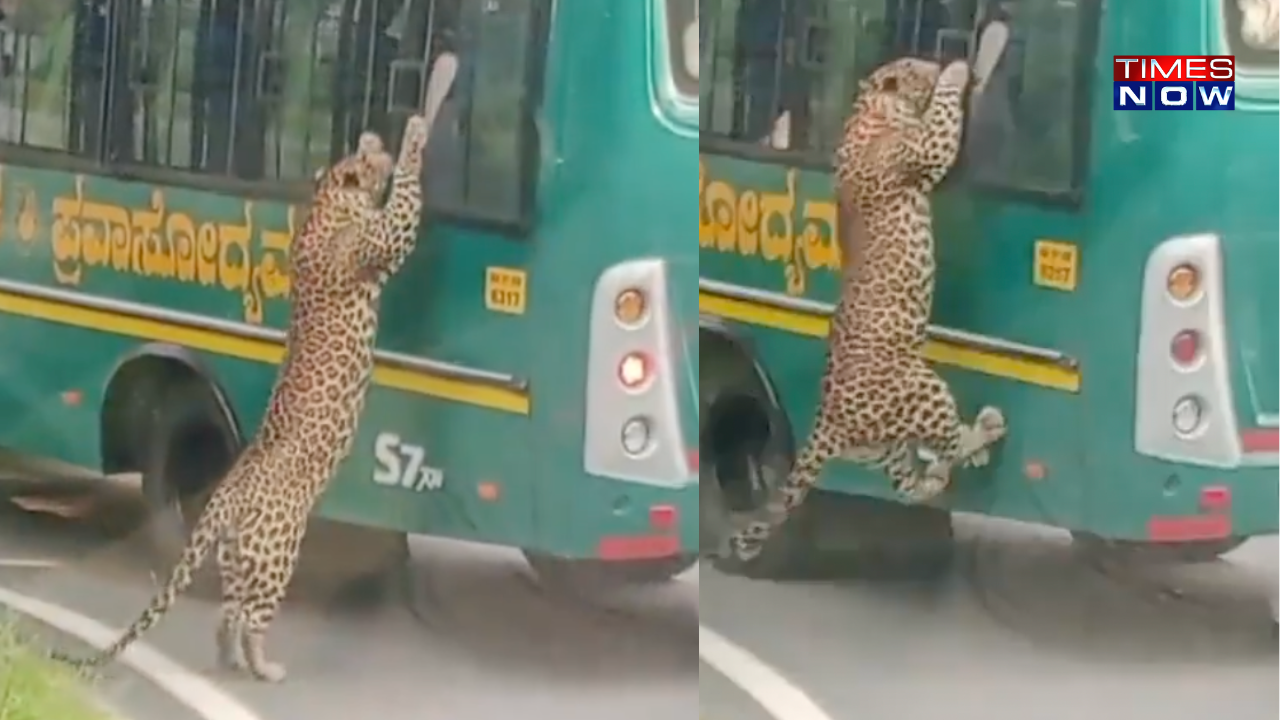
Bengaluru: Visitors at Bannerghatta National Park were left shocked when a leopard attempted to leap onto their safari bus during a recent tour. The incident, which was caught on video and has now gone viral on social media, shows the wild cat trying to jump onto the vehicle, causing panic among the passengers.
In the video, the leopard can be seen making several attempts to get onto the bus, even trying to push its head through a window at one point. The sudden encounter left tourists inside shouting and screaming in fear. The terrifying moment, while brief, left many of the passengers both amazed and scared.
Watch Video:
#WATCH- Tourists Panic As Leopard Jumps Onto Safari Bus Window At Bengaluru’s Bannerghatta Zoo.#ViralVideo#Viral#Bengaluru#BannerghattaZoopic.twitter.com/THjk3OWCK3
— TIMES NOW (@TimesNow) October 7, 2024
Despite the tense situation, the bus’s glass windows ensured the safety of everyone on board, preventing the leopard from coming any closer.
This close call with the leopard left the visitors with a heart-pounding memory of their safari experience at the national park.
Karnataka Launches India’s Largest Leopard Safari at Bannerghatta Biological Park
In a significant development for wildlife enthusiasts, Karnataka Minister for Forests, Ecology, and Environment, Eshwar Khandre, inaugurated the largest leopard safari in India at the Bannerghatta Biological Park this June. During the launch, he encouraged officials to offer discounted saplings to visitors, fostering a greater connection between people and nature, as per HT report.
Khandre said that while zoos play a crucial role in caring for wildlife, they should also transform into centres of knowledge. He said, "Zoos are known to care for wildlife, but apart from entertainment, zoos should also become centres of knowledge."
As part of the safari experience, visitors will be able to observe eight leopards in a natural habitat that spans 20 hectares (about 49.5 acres) of deciduous forest. The minister shed light on the importance of educating visitors about the environment, saying, "People who come to the biological park are happy to see the wildlife, but they should also be made aware of at least ten types of trees by providing them information so that they can recognise the trees here."
To ensure the safety of both the leopards and the visitors, the safari area is protected by a railway barricade and a chain link fence that stands 4.5 metres high. Additionally, metal sheets measuring 1.5 metres have been installed at a 30-degree slant to prevent the animals from escaping. The development has been guided by the regulations set forth by the Central Zoo Authority, ensuring a safe and enriching experience for all who visit the park.

